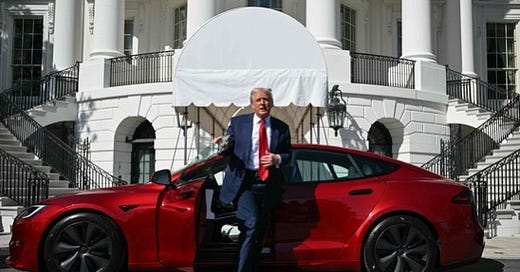Will Trump Tariffs lead to recession in US?
President Donald Trump has made a lots of decisions in last 55 days that have lead to fear in the markets. What are the tariffs and how can it impact your life.
Donald Trump has been in office for just 50 days, but he has already shaken things up—at the center of it all: tariffs.
Why it matters: A tariff is a tax on imported goods. Trump wants to impose tariffs on every country selling to the U.S. to reduce the trade deficit. But his tariff spree has sparked recession fears and a stock market slump.
Driving the news:
• This isn’t new. Trump used tariffs in his first term and campaigned on bringing them back.
• Since taking office, he has slapped tariffs on China, Canada, and Mexico.
• Steel and aluminum imports now face higher duties.
• Next up: reciprocal tariffs—countries that tax American goods will face equal tariffs in return. India could be affected.
Trump’s logic:
• It’s all about MAGA—Make America Great Again. He wants companies to manufacture in the U.S.
• More domestic production means stronger economic growth and more jobs.
• Higher tariff revenue could fund income tax cuts.
The reality check:
• Tariffs contribute just $1.20 for every $100 the U.S. government earns. Experts doubt they’ll generate enough to fund tax cuts.
• Markets are already reacting negatively—S&P 500 is down 4% NASDAQ has dropped 8%.
• HSBC, Citi, and Goldman Sachs are warning of a potential recession.
• Inflation concerns are rising, which could slow down Federal Reserve rate cuts, impacting long-term growth.
The big picture:
• Trump sees the stock market as a barometer of his popularity.
• He now calls this a “transition period,” arguing that China plans for a century while the U.S. thinks quarter by quarter.
• If his bet backfires, everyone will pay the price.
(Hisab Kitab is a Hindi Newsletter published on the LinkedIn every Sunday morning and watch the video version on Biz Tak in the evening. Catch past videos here. This is the English Version of the Hindi Newsletter)




